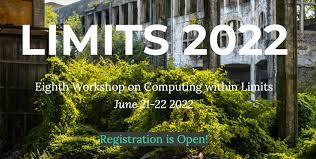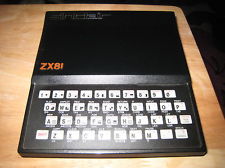
LIMITS
I have just attended LIMITS 22, the eight annual workshop on computing within limits.
As the name suggests, the workshop addresses the role of computing in human societies affected by real-world limits, for example limits of extractive logics, limits to a biosphere’s ability to recover, limits to our knowledge, or limits to technological “solutions”.
Very much tied to the interests of the TechnologyBloggers website, this collection of researchers and practitioners aim to reshape the computing research agenda, grounded by an awareness that contemporary computing research is intertwined with ecological limits in general and climate- and climate justice-related limits in particular.
This was a virtual distributed workshop, with many participants joining hubs so that they could avoid travel but still attend a social event. I touched upon this as a model in my post about conferencing a few weeks ago.
I attended one of such hubs in Rotterdam (Netherlands), held at Varia, a space for developing collective approaches to everyday technology. There were a dozen people there, computer programmers, university lecturers and students and the likes, which made for interesting discussion during the break-out sessions and a very nice social mix.
I won’t go into the individual presentations too much, but would like to highlight a few of the questions addressed and point readers towards some resources.
What is the carbon footprint of streaming media?
Researchers estimate that streaming media accounts for about 1% of global carbon emissions. These emissions are created throughout the chain, with only a small percentage visible to users (the electricity that appears on their household bills), the vast majority hidden as it is produced during data storage, cooling, delivery, maintaining back-up systems and during a miriad of other processes (not to mention construction, mining of raw materials, etc).
This website offers lots of information, beginning with the startling revelation that ICT in general is estimated to use about 7% of all electricity used, so may contribute (depending how the electricity is produced) to up to almost 4% of global greenhouse gasses.
So the actual carbon footprint is very difficult to measure, with a range offered for watching a streamed film as equivalent to burning between 1.2 and 164 kilos of coal (depending on your calculations and not the film).
The large data centres providers often claim that they use clean energy for their centres, but this was also questioned as their mass use of this energy has been shown to monopolize access, at very least having an enormous effect on the local networks and sometimes resulting in others having to use fossil fonts,. Their green claims were described as cherry-picked.
Digital platforms
Well we all love a digital platform don’t we? Facilitating car sharing, what could be better than that? Well even here a critical perspective appears, as we have to add ICT emissions to real emissions if calculating the possible environmental implications. And not only that! For example, using one car instead of two halves the emissions for analytical purposes, but on top of this we should add the ICT emissions (which as we know are difficult to work out). But we can come up with an estimate. Then behavioural change might also come into play. People might drive further because they are sharing, some will share a car and leave the bike at home or not take the usual train. It all becomes rather murky.
Other discussions
Other questions arose: what are the implications of framing the discussion in terms of limits, rather than abundance? Could such a reframing bring in an ethics of care? Can we discuss the relationship between humans and nature and its ties to capitalism? What role can religion take? How important are imaginaries of the (technological) future? Does the public have the information required to understand the environmental implications of their choices?
As you can see, it was very stimulating.
Check out this website for a perspective.
And the Chaos Computer Club for another.
The papers are all available here so fill your boots.



